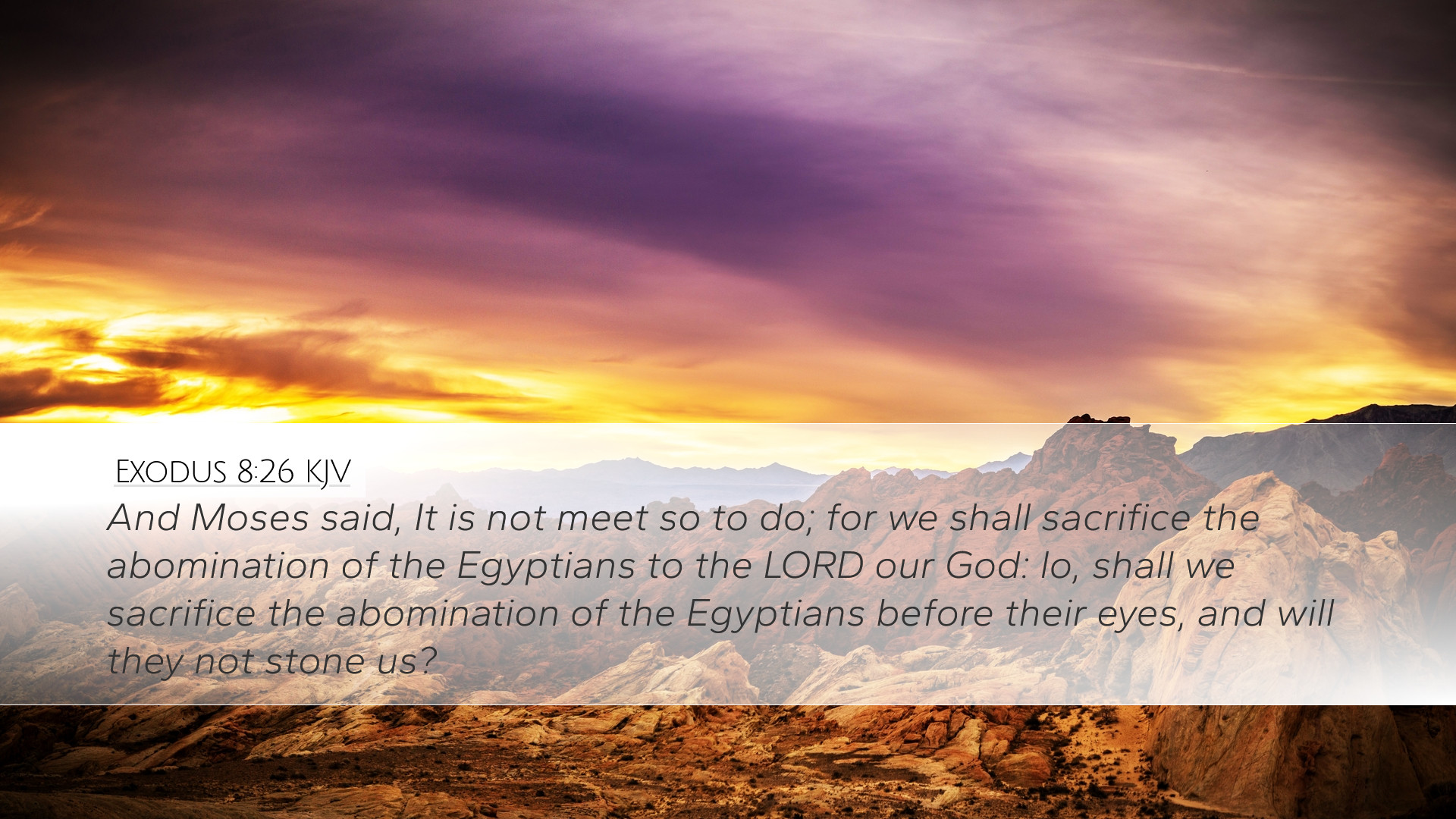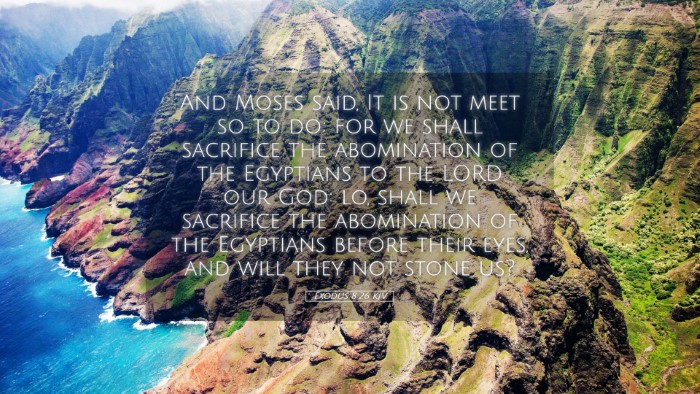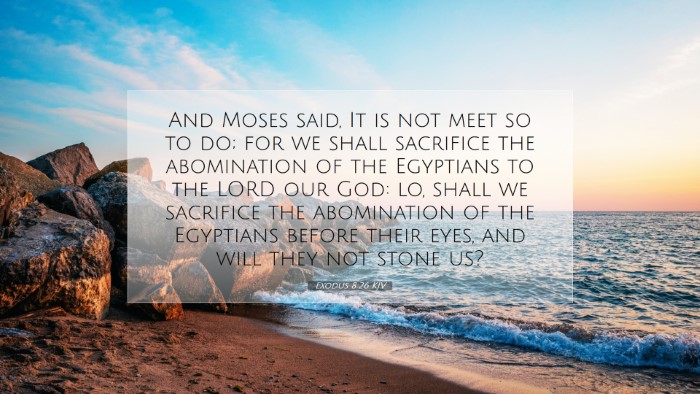Commentary on Exodus 8:26
Verse: Exodus 8:26 (KJV) - "And Moses said, It is not meet so to do; for we shall sacrifice the abomination of the Egyptians to the LORD our God: lo, shall we sacrifice the abomination of the Egyptians before their eyes, and will they not stone us?"
Introduction
This verse is situated in the narrative of Moses’ confrontation with Pharaoh during the plagues in Egypt. It reflects the conflict between the Egyptian and Hebrew cultures, particularly regarding religious practices. This commentary synthesizes insights from various public domain sources, providing a deeper understanding for students, pastors, and theologians.
Context and Background
The setting of this verse emerges during the plagues, which were divine judgments serving to demonstrate God's sovereignty over Egypt’s gods. Moses had demanded that Pharaoh let the Israelites go, presenting the first requests and subsequent refusals. This dialogue reveals the profound clash between the beliefs of the Israelites and the Egyptians.
Interpretation and Analysis
Moses’ response to Pharaoh's suggestion of compromise encapsulates several key theological themes:
- The Nature of Sacrifice: Moses emphasizes that the sacrifices to be offered to God are detestable to the Egyptians—the “abomination” that they worship. This raises the question of identity and the importance of honoring God according to His directives.
- Public Perception: The phrase, “before their eyes,” highlights the significance of public perception. Moses knew that performing such sacrifices in front of the Egyptians could incite violent reactions, demonstrating Moses’ sensitivity to the cultural context.
- Divine vs. Human Worship: The verse illustrates the contrast between divine worship and human-made rituals. It reinforces the idea that God’s ways are not only distinct but are preserved from false worship practices.
Theological Implications
This passage raises questions about the intersection of culture and worship:
- Holiness of Worship: The notion that some offerings are unacceptable to God urges worshippers today to consider what sacrifices are made and whether they align with Biblical standards.
- Fear of Authority: Moses’ fear of persecution speaks to the broader fear believers often have in openly practicing their faith in hostile environments.
Commenting the Text
Matthew Henry's Commentary: In reflecting on this verse, Henry pointed out that compromises with worldly authorities can lead to confusion about true worship. He asserts that true religion must be untainted by the abominations around us, which reinforces the necessity of purity in worship practices.
Albert Barnes' Notes: Barnes elaborated on the term "abomination," interpreting it as entities sacred to the Egyptians. He warns that the Israelites were to avoid practices that were unacceptable both to God and offensive to Egyptians, illustrating how necessary it was for them to maintain distinct identity during their journey.
Adam Clarke's Commentary: Clarke noted the danger of appeasing Pharaoh. He emphasizes that the offer of a compromise not only diminished the gravity of their bondage but also illustrated the length to which Pharaoh would go to maintain control. Clarke underscores the unwavering stance of Moses as an example for believers to not succumb to societal pressures.
Practical Applications
This verse encourages reflection on several practical applications in contemporary settings:
- Maintaining Distinction in Faith: Believers are reminded to preserve their identity in Christ, particularly in environments that may demand conformity to secular practices.
- Understanding Cultural Sensitivity: As Moses acted with wisdom regarding cultural perceptions, modern Christians must also navigate their worship and witness with an understanding of those around them.
- Courage to Stand Firm: Just as Moses demonstrated courage in the face of possible retribution, Christians are called to stand firm in their convictions, trusting in God's sovereign protection.
Conclusion
Exodus 8:26 serves as a significant reminder of the complexities involved in worship amid cultural challenges. By learning from Moses’ refusal to compromise, believers can cultivate a faith that honors God while engaging meaningfully with their contexts. This commentary, drawing from historical insights and theological principles, seeks to aid in the understanding and application of God's Word in every age.


